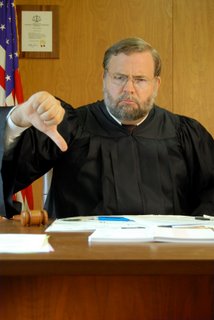 The Supreme Court decision yesterday in Riegel v. Medtronic is all over the web (links at bottom). The decision grants immunity from lawsuits for any medical device maker whose product was granted pre-market approval by the FDA. In other words, big government is now the only safety mechanism.
The Supreme Court decision yesterday in Riegel v. Medtronic is all over the web (links at bottom). The decision grants immunity from lawsuits for any medical device maker whose product was granted pre-market approval by the FDA. In other words, big government is now the only safety mechanism.
This post from Beck/Herrmann at Drug and Device Law is worth noting, since they represent device makers, defend these suits, and have been championing such a decision for a long time.
 Now that they won, it means they have lost business. A whole bunch of lawsuits regarding medical devices that have received FDA pre-market approval will now disappear. And with it, millions in legal fees for BigLaw firms such as theirs that handle these claims.
Now that they won, it means they have lost business. A whole bunch of lawsuits regarding medical devices that have received FDA pre-market approval will now disappear. And with it, millions in legal fees for BigLaw firms such as theirs that handle these claims.
So what do they have to say about it? Here’s the money quote on the subject: “Good defense lawyers go out there every day trying to find ways to put ourselves out of a job. That’s what we’re supposed to do — find ways that our clients will have less need for our services.”
There you have it. But wait, there is much more. The post goes on to warn of the future hazards to their clients if they now screw up by convincing the FDA to let them put dangerous products out on the market. Will they still have immunity for that product?
Yes. But. And that “but” is the essence of their very-readable post today, because just as laws can be passed that grant immunity, so too can laws be passed that take that immunity away.
In their view this is an opportunity to see if federal regulation results in safer products than private lawsuits that provide that incentive. Essentially, the question posed is: Is it the government or the private sector that can best defend the public from dangerous products?
The question posed, of course, is not just one of public v. private, but of big government v. small. So perhaps, this might be a good time to haul out an old Ronald Reagan quote:
The nine most terrifying words in the English language are, ‘I’m from the government and I’m here to help.’
Other posts on the substance of Riegel v. Medtronic:
The posts keep piling up…some more ….



